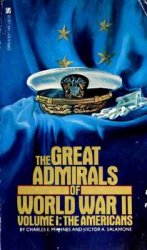In Teheran, Stalin and Churchill took up residence in the adjacent Russian and “ British embassies, which were protected by a single perimeter under British and Russian guard. But Roosevelt, in the American embassy, lay a mile or so distant, entailing the inconvenience, if not the danger, of mutual journeyings to meet in session. Molotov, the Russian foreign minister, suggested that Roosevelt come to live in an annexe to the Russian embassy; Churchill backed the idea; and the President and his staff duly moved in. With hindsight and knowledge of Russian skills in "bugging”, it may be surmised that Molotov was not only prompted by emotions of hospitality and concern for the President’s safety; certainly the Russian delegation was to show itself acutely aware of the differences over strategy and policy between the British and Americans. Harry Hopkins wrote: "The servants who made their beds and cleaned their rooms were all members of the highly efficient NKVD, the secret police, and expressive bulges were plainly discernible in the hip pockets under their white coats. It was a nervous time for Michael F. Reilly and his own White House secret service men, who were trained to suspect everybody and who did not like to admit into the President’s presence anyone who was armed with as much as a gold toothpick.”
On the afternoon of November 28 the first plenary session of the Teheran Conference ("Eureka”) opened in the Russian embassy under, as with all the sessions, President Roosevelt’s chairmanship. Flanked by Molotov and Marshal Voroshilov, Stalin was resplendent in a uniform, according to Lord Moran, "that looks as if it has not been worn before, and gives the impression that it has been specially designed for the occasion. It looks, too, as if the tailor has put on it a shelf on each shoulder, and on it dumped a lot of gold lace with white stars. And there is a broad red stripe down the trousers, which are immaculately creased. All this is crowned with a dreadful hat, smothered with gold braid.” Gaudily uniformed or not, Stalin dominated the conference from the start. In his very opening statement he announced that after Germany’s defeat
Russia would join in the war against Japan, a development that at once threw Anglo-American grand strategy in the Pacific and Far East into the melting-pot.




 World History
World History









